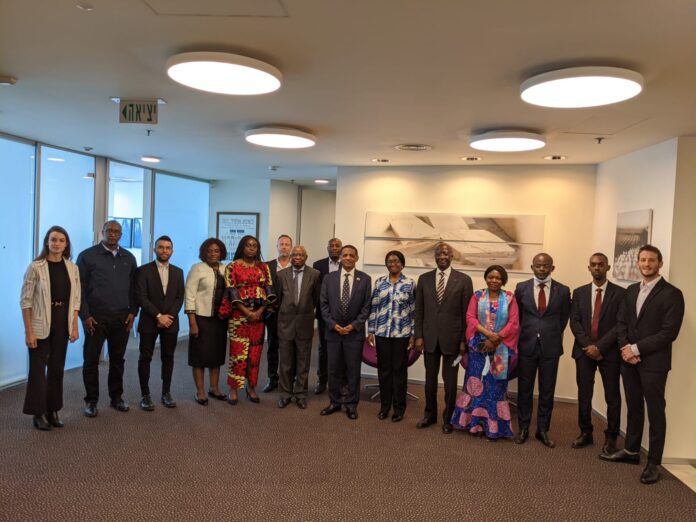
The Israeli high-tech company, Aura Air, hosted ambassadors of African countries for a meetup focusing on methods of dealing with COVID-19 with the help of Israeli technologies. The ambassadors were presented with indoor air purification and disinfection systems that fight bacteria and viruses, among them COVID-19. In addition, both parties held a discussion about how to apply the knowledge and developments in their own countries.
The ambassadors of Ethiopia, Angola, Cameroon, Democratic Republic of Congo, Equatorial Guinea, Ghana, Nigeria, Rwanda, Mozambique, and Zambia attended the meeting, thanks to Lior Asias and Rani Greenberg, who are in charge of projects in those countries.
The ambassadors presented the state of their countries in terms of morbidity and the measures in the struggle against COVID-19. They agreed on the establishment of an Israeli production line and innovation center for the training and presentation of clean air technologies in Ethiopia, which will serve as the basis for carrying out other health projects around the continent.
Aviad Shnaiderman, the founder and CEO of Aura Air, stated that, unlike Israel, many countries around the world are far from seeing the end of the COVID-19 era, and it’s still necessary to find ways to maintain a routine that includes indoor activities under the current circumstances.
During the year of the pandemic, we’ve installed thousands of systems that contributed to saving lives around the world. Most of our projects took place in the US, Europe, and the Far East. We’re happy to bring Israeli technological capabilities to counties in Africa as well and to assist them in the fight against COVID-19 and other diseases that are associated with polluted air.
The system, developed by the start-up, filters the air in closed spaces using four stages of filtration and unique technologies. A study conducted at Sheba hospital determined that the system has the ability to eliminate different viruses and bacteria at a rate of 99.97%. The device’s mechanism is based on artificial intelligence that compares indoor air quality with that of the outdoors in a series of measures, thus detecting a decrease in its quality in advance and treating the air accordingly.
In the event of a high rate of hazardous gases, a warning is sent to the user via a dedicated app so they can take care of the hazard. The systems have already been installed in governmental buildings, sports halls, dining and entertainment venues, schools, hospitals, hotels, and public transports around the world.









